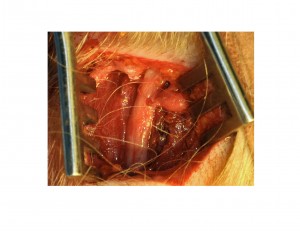The most common surgical treatment today for migraine headaches that are due to peripheral occipital nerve impingement is decompression as the nerve courses through the neck muscles and fascia. While this operation has a significant rate of symptom improvement, not all patients get better and some who get better relapse back after a period of time. What is there to do when decompression surgery fails?

In the February 2014 issue of the Annals of Plastic Surgery, a migraine treatment study was published entitled ‘Occipital Nerve Excision for Occipital Neuralgia Refractory to Nerve Decompression’. In this paper, patients who had undergone greater occipital nerve excision (GONE) after failing occipital nerve decompression were evaluated. A total of 71 patients who had an average follow-up of 33 months had their headache severity measured by the migraine headache index (MHI) and disability by the migraine disability assessment. The success rate of surgery was 70% of which 40% of patients showed a 90% or greater decrease in migraine headache symptoms with an average reduction of 63%. The most common adverse effect was bothersome numbness or hypersensitivity of the scalp on the back of head, occurring in up to one-third of the patients.
While the GONE procedure is historic and predates nerve preservation and decompression, it is always an option after failed nerve decompression surgery. This study shows that it is a reasonable option for headache relief in patients with occipital headaches refractory to both medications and surgical decompression. The reason it is not the first surgical procedure used is the risk of problematic numbness or hypersensitivity of the scalp. But that trade-off may be worth it when initial decompression for migraine surgery fails.
Dr. Barry Eppley
Indianapolis, Indiana


